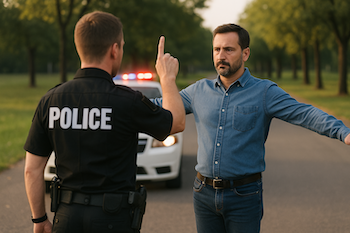 Field sobriety tests (FSTs) are a key tool used by law enforcement in Will County to determine impairment during DUI stops, but they are often subjective and challengeable in court. At **Will County DUI Lawyers**, led by former prosecutor Jack L. Zaremba with over 20 years of legal experience, we defend clients in Joliet, Plainfield, Lockport, Romeoville, and surrounding areas by scrutinizing FST evidence to seek dismissals or reductions. This blog post examines the role of FSTs in Illinois DUI cases, their limitations, and defense strategies.
Field sobriety tests (FSTs) are a key tool used by law enforcement in Will County to determine impairment during DUI stops, but they are often subjective and challengeable in court. At **Will County DUI Lawyers**, led by former prosecutor Jack L. Zaremba with over 20 years of legal experience, we defend clients in Joliet, Plainfield, Lockport, Romeoville, and surrounding areas by scrutinizing FST evidence to seek dismissals or reductions. This blog post examines the role of FSTs in Illinois DUI cases, their limitations, and defense strategies.
What Are Field Sobriety Tests in Illinois?
Field sobriety tests are roadside exercises administered by officers to assess a driver's balance, coordination, and attention for signs of impairment from alcohol or drugs. Standardized FSTs recognized by the National Highway Traffic Safety Administration (NHTSA) include the Horizontal Gaze Nystagmus (HGN), Walk-and-Turn (WAT), and One-Leg Stand (OLS). In Will County stops, like those on I-80 in Joliet or local roads in Plainfield, officers look for clues such as involuntary eye jerking, inability to follow instructions, or loss of balance. Non-standardized tests, like alphabet recitation or finger-to-nose, may also be used but are less reliable. These tests are voluntary in Illinois—refusal doesn't carry penalties but may lead to arrest based on other observations.
Limitations and Challenges of Field Sobriety Tests
FSTs are not foolproof and can be influenced by factors unrelated to impairment, such as medical conditions (e.g., inner ear issues, injuries), fatigue, nervousness, or environmental conditions like uneven roads or poor lighting in Will County areas. Officers must be properly trained to administer them correctly; errors in instructions or scoring can invalidate results. In Joliet courts, defenses often involve video footage showing test flaws or expert testimony on unreliability. Refusal to take FSTs can strengthen your case by limiting evidence against you. Our firm analyzes arrest reports and body cam videos to expose these weaknesses.
Penalties and Defenses in Will County DUI Cases Involving FSTs
A DUI conviction based on FSTs in Illinois can lead to fines up to $2,500, jail time (up to 1 year for first offenses), license suspension (6-12 months), and mandatory classes. Aggravated cases with injury escalate to felonies with 1-3 years prison. Defenses include suppressing FST evidence if the stop lacked probable cause or tests were improperly conducted. In Will County, we file motions to exclude unreliable FSTs, negotiate pleas to lesser charges, and pursue acquittals. For CDL holders or professionals, protecting your record is critical.
How Will County DUI Lawyers Can Help
At Will County DUI Lawyers, Jack L. Zaremba uses his prosecutorial insight to dissect FST evidence, cross-examine officers, and build robust defenses for DUI cases in Joliet and beyond. We also handle license reinstatement post-conviction. Contact us at willcountyduilawyers.com for a free consultation today.
Tips to Handle Field Sobriety Tests in a DUI Stop
- Know Your Rights: FSTs are voluntary—politely refuse.
- Document the Scene: Note conditions like weather or road surface for defense.
- Remain Calm: Avoid arguments to prevent additional charges.
- Contact a Lawyer Immediately: Early involvement preserves evidence.
- Seek Medical Review: Conditions affecting balance can explain failures.
These steps aid your defense.
Conclusion
Field sobriety tests play a pivotal role in Will County DUI cases but are fraught with flaws that skilled defense can exploit. From limitations to penalties, Will County DUI Lawyers is your ally in Joliet and beyond. Contact us at willcountyduilawyers.com for expert help today.
---
Disclaimer: This blog post is for informational purposes only and does not constitute legal advice. For personalized assistance, contact Will County DUI Lawyers at willcountyduilawyers.com.

